Key Information
Speech & Language
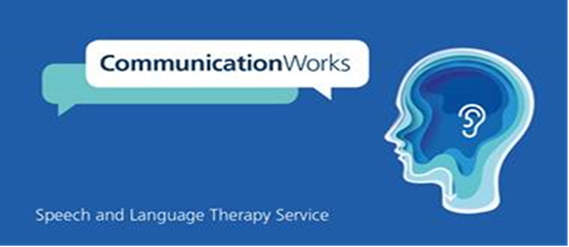
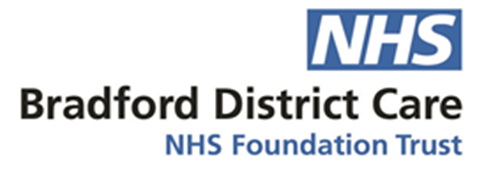
What does a Speech and Language Therapist do ?
 They help children who have Speech Language and Communication Needs (SLCN) to communicate to the best of their ability. Their role is to support the development of a child’s understanding and use of language as well their speech production.
They help children who have Speech Language and Communication Needs (SLCN) to communicate to the best of their ability. Their role is to support the development of a child’s understanding and use of language as well their speech production.
Speech, language, and communication and learning at school is very closely linked. If children are having difficulties in understanding or using language, this will affect their ability to learn.
Parents
Parents and carers can refer a child to the Speech and Language Therapy service. Please phone our admin team on 01274 221166. We will arrange a time for you to talk through your concerns with a therapist. You will be provided with some strategies to support your child at home. After three months you can access a review phone call and a referral will be made if this is appropriate.
Please watch the video:
School
School uses a screening tool for the child's relevant age. The tool is used to help staff determine whether a referral to the service is appropriate. It also helps the school to know where to focus universal or targeted support. Children need to meet the red criteria for a referral to be considered by speech and language.
What Is The Role Of The Speech & Language Therapist?
Assessment: Following a referral direct from the parent or from the child’s teacher (with parental consent, The Speech and Language Therapist will assess the child’s speech, language, and communication skills in one or more of the following ways:
- observation and informal assessment tasks
- talking to education staff and other professionals
- talking to you and your child
- formal or standardised assessment
Sometimes we will use the help of a professional interpreter if your child needs this.
Normally, parents would be allowed to attend the assessment session in school if they wish but unfortunately due to Covid-19 policy, parents are not able to attend now. Results of the assessment findings will be communicated to you on the phone or via a written report.
Setting Targets: There are a lot of universal strategies that the class teacher can use to support children’s language and communication skills in class. Children however are different and have different communication needs. If a child has been diagnosed as having a Speech, Language or Communication Need (SLCN) they may require their intervention to be tailored to meet their individual needs. This means that your child's intervention is likely to be different to other children in the same class.
Review: Your child's communication needs will change and develop; therefore, we will need to re-assess skills at various times during the year. We will keep parents updated on the outcome of assessments by calling you and/or writing to you. When assessment or evaluation of previous goals has been completed, the Speech & Language Therapist will look at the results and set appropriate goals for your child - these will be written on an intervention plan and shared with parents, education staff and any other relevant professionals. The Speech & Language Therapist will also collaborate with children’s class teachers to incorporate these goals into their Learning Plan (LP).
If a child is to achieve success with their goals the Speech & Language Therapist, Class Teacher, Teaching Assistant and Parents must work together - one person or professional cannot achieve this by working alone.
Intervention: The Speech & Language Therapist will support your child's communication needs by:
- liaising with other professionals as needed.
- preparing programmes of intervention.
- Supporting and providing training to education staff and parents on how to carry out intervention programmes.
- attending meetings such as Annual or EHCP Reviews
- meeting with parents/carers (in person or via Microsoft Teams)
- 1:1 intervention directly with your child.
- working with your child as part of a group.
- working with education staff to implement universal, whole class strategies.
- Supporting children with key transitions.
- Joint working with Specialist Speech & Language Therapists when necessary.
Although your child may not always receive direct intervention from the Speech and Language Therapist, we are always working to provide your child with the most appropriate support to meet their needs.
Episodes of care: The aim of the Speech and Language Therapy Service is to enable your child to achieve their communication potential. We work to an episode of care model. This means that children may be discharged from the service once they have reached their goal or if they need more time to continue working towards it. They may be re-referred further down the line if further support is needed. If discharge is to be considered, it will be discussed with parents, education staff and other relevant professionals involved.
What Is The Parent’s Role?
Once your child has learned a new skill through therapy intervention, they will need to generalise it from one situation to another. This can be one of the hardest things for children to do. You can help your child to achieve this by:
- Being aware of what your child's Speech and Language Therapy targets are – If the targets change, you will be given a copy of their Target Sheet at regular times throughout the school year.
- Attend information/training sessions provided by the Speech and Language Therapy department - they will help you to understand strategies and approaches that you can use to help your child.
- Practise activities that the Speech and Language Therapist sends home from school – Usually, practicing the skills little and often is the most effective in children. Provide feedback to the Speech and Language Therapist.
- Think of opportunities for your child to practise their communication skills at home and in everyday activities - your child will achieve greater success if they practise in lots of different situations.
- Take opportunities to meet regularly with your child's Speech and Language Therapist – you can request an appointment by asking the teacher or by calling the admin hub direct.
- Attend appointments offered by the Speech and Language Therapist during school holidays - this will help your child to maintain skills and give you a chance to meet with the Speech and Language Therapist.
- If your child attends appointments with other professionals, please let us know. This information may be useful in joint and planning the support we give to your child.
Jargon-Buster
There are a variety of strategies and interventions that can be used to support children’s language skills. Some strategies that you might see mentioned on your child’s report may include:
Active Listening - This programme supports children to take responsibility for understanding a message so that rather than guess or opt out, they acknowledge any difficulty and know how to ask for help. Comprehension faces are used in sessions and children are supported to use them to identify when they understand / do not understand / not sure.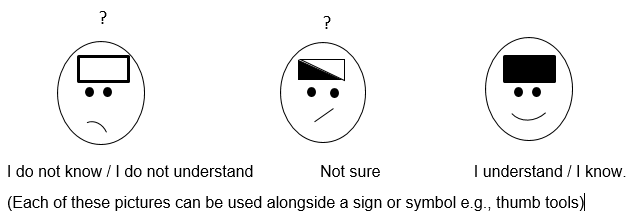
Blank Levels - research shows that there are 4 levels in the development of a child's verbal reasoning and abstract language skills. The more advanced skills in these levels are prediction, problem solving, justifying answers, and inferencing skills. All skills that are important for developing relationships and for accessing learning opportunities. Blank Levels is an approach that helps us to support the development of these skills.
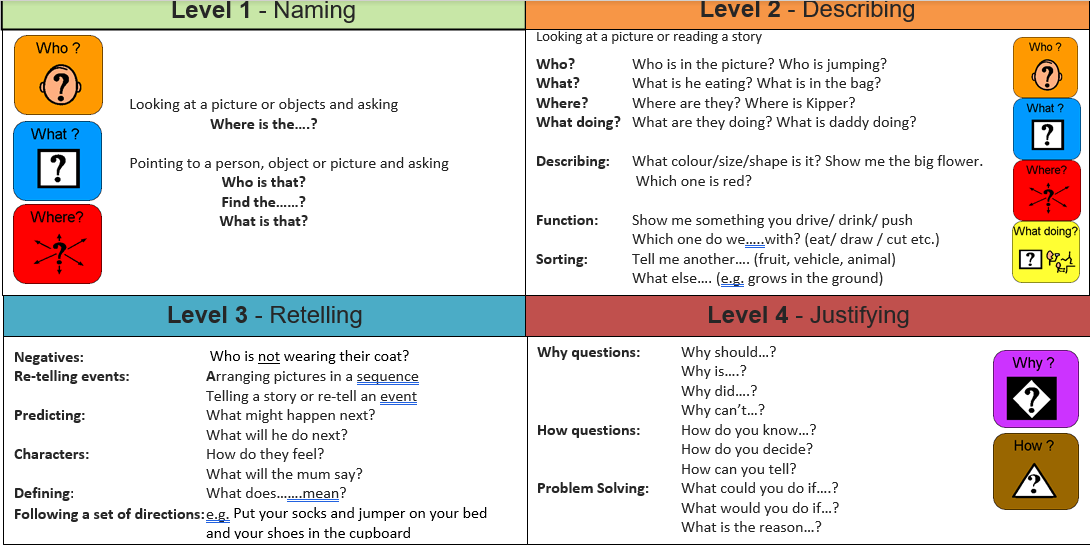
Colour-coding & Shape-coding - many children have difficulty understanding how sentences are put together and the rules of grammar. We can use shapes and colours to represent parts of language and give the children a visual structure of how sentences can be put together.

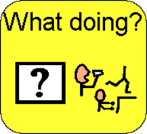
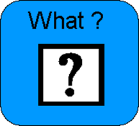

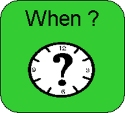
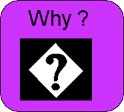
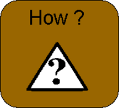
Cued Articulation - a system of using hand gestures to provide a visual representation of speech sounds (or phonemes). This can be useful in helping children to develop speech sounds and literacy skills.
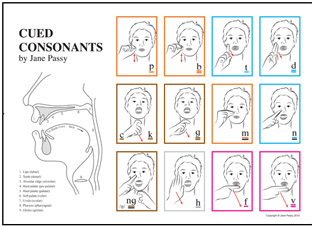
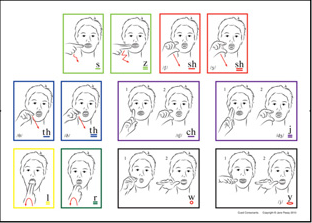
Intensive Interaction - Intensive Interaction is an approach to interacting with children who have not yet developed the ability to communicate with others.  The approach aims to teach the fundamentals of communication that are essential for development, learning and wellbeing. Fundamentals of communication are the first things that are learnt in typical development. These are things like:
The approach aims to teach the fundamentals of communication that are essential for development, learning and wellbeing. Fundamentals of communication are the first things that are learnt in typical development. These are things like:
- Being aware of others
- Enjoying being with others and having fun with them
- Making eye contact
- Sharing attention and personal space with another person during an activity
- Using and understanding non-verbal communication and physical contact
- Using and understanding facial expressions
- Learning turn taking skills
- Making meaningful vocalisations.
- Learning to regulate emotions and behaviours.
Makaton: - Makaton” is a language program which uses signs and symbols to help people to communicate. It aims to support spoken language and the signs and symbols are used with speech. The BBC's children's program “Something Special” with Mr. Tumble uses Makaton throughout each episode.
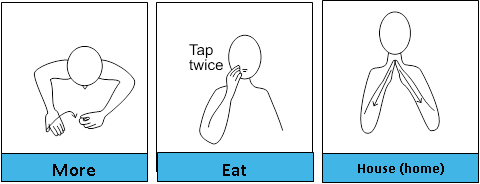
Now and Next Board - A Now and Next board uses visual supports to help a child:
- understand what is happening.
- finish one task before starting another.
- move from one task to another without becoming upset.
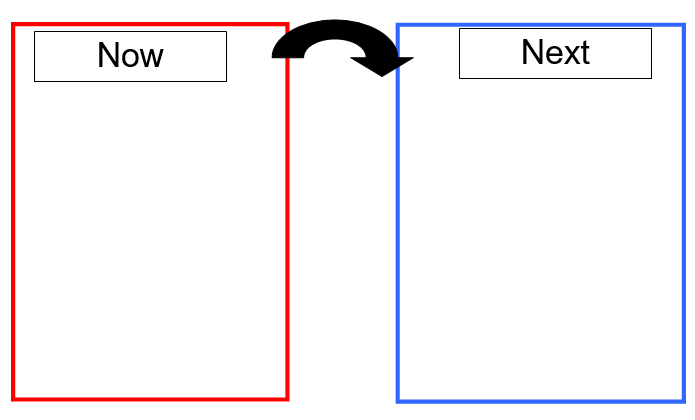
Parent-Child Interaction (PCI) - this a way of working on the development of core communication skills between parents and children, such as shared attention, turn taking skills, play skills and appropriate use of language.
Social Stories and Comic Strip Conversations – These are tools used to help children to understand social situations. They are a short description of a particular event or situation including what to expect during the event or situation and why. They can be used to support behaviour, provide feedback, help to cope with change, help to understand different perspectives or develop self-care skills.
Visual timetables- within the classrooms, staff will often use visual timetables to let the children know what is happening during the day. This may be for various reasons - some children may find it difficult to understand verbal instructions, but they do understand pictures; some children may have difficulty remembering and so a visual reminder is something they can refer to; some children get anxious if they don't know what is happening during the day and a visual schedule helps relieve some of this anxiety; some children need to see a visual representation of events so that they know when they day will end.
Vocabulary strategies (Word AWARE, Word Webs, Word Maps)- there is evidence to show that if a child is having difficulty learning and remembering words, they will find it much easier if they know lots of information about the word. For example, how many syllables it has? What sound it begins with? Where it can be found? How does it work in a sentence? Can you describe it? Etc.
